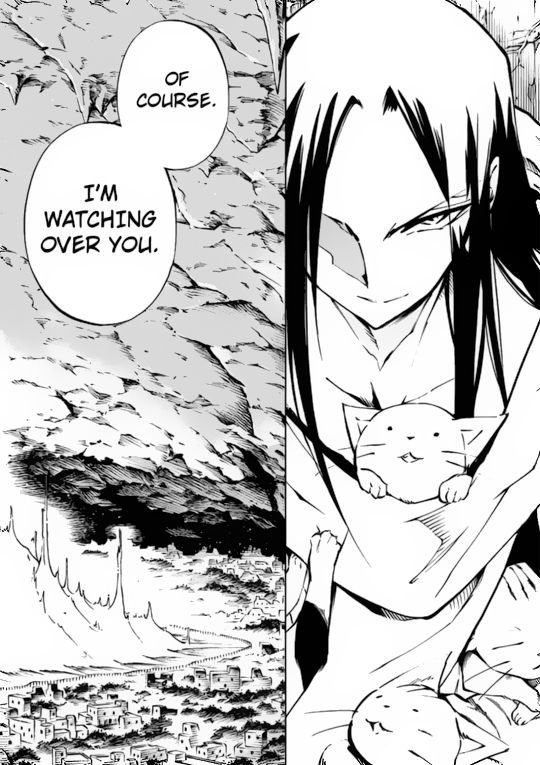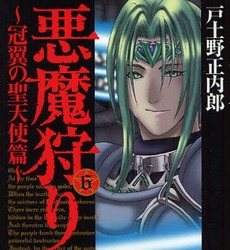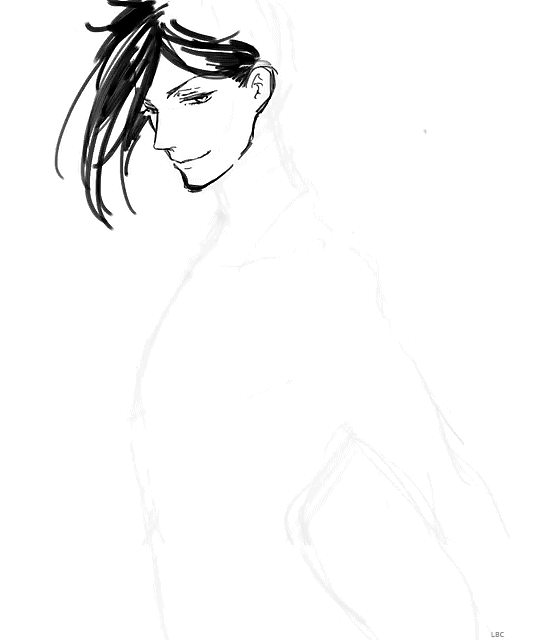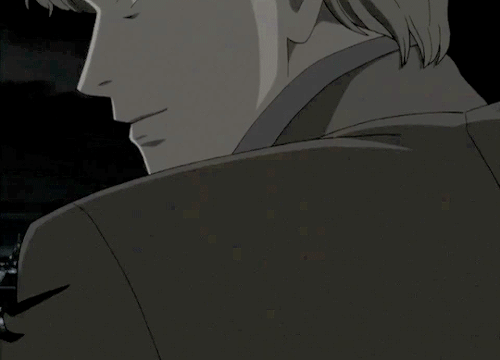#something something friendship and loyalty something something frodo being the best protagonist in the world
Text
you know I’m not doing great mentally because I’ve watched lotr every night for the past week…
#it brings an overwhelming sense of joy and peace to me while also making me sob every 30 minutes#something something friendship and loyalty something something frodo being the best protagonist in the world#every character brings so much to the story and has so much love and continue to fight for peace no matter what they’re going through#Sam and frodos soulmate bond and loving friendship is unmatched and makes me get so emotional every time I think about them too long#I just have so much to say about these movies and yet don’t know where to start#lotr#samfrodo#frodo baggins
15 notes
·
View notes
Text
The Dark-Lord Family, A.K.A. My Top 5 Favourite Villains
Melkor/Morgoth + Mairon/Sauron -- The Lord of the Rings+The Silmarillion
I know that’s two, but don’t make me separate them. I will not separate them.
They’re actually going to be the odd one out in this list because the rest are from anime/manga, but that’s because back when I was in middle school, I found villains from fantasy stories boring af and the notion that something external is the source of evil is just lazy. (Also because my obnoxious middle-school brain just went ‘Argh, blaming other people for your problems is soooo immature’ and shut down.) Arguably, I wasn’t well-versed in those kinds of literature, and stuff I did choose to read from that side of the globe don’t have villains in them.
And that’s kind of why these two makes the list -- they are more properly constructed than other dark lords that I know of. Yes, they serve as the personification of evil, but Tolkien also treated them as characters. They have reasons for becoming what they’ve become. And even though they are depicted as the epicentre of evil and destruction, evil isn’t actually their domain. Tolkien was pretty clear about that in his writing because he also examined and, to some degree, deconstructed evil in his universe. The Feanorians are chief examples of that. Turin is not really off the hook with some of his bad life choices (and I don’t mean marrying his sister; when intent in factored in, that’s actually not the worst Turin had done). And don’t get me started on how much I loathe Denethor.
In a way, I found Tolkien depiction of dark lords rather subversive. Having a dark lord really plays into a primal psychology that wants to blame the ill of the world to someone: capitalism, communism, Hitler, Stalin, Baby boomers, Millenials, the Jews, the Muslims, the conservative Christians, the patriarchy, cis white (American) males. But in the deconstruction of the dark lords, he was also saying, really, that evil without comes from the evil within and it’s complicated because evil is a part of nature. It doesn’t come from a box, an apple, a fallen angel, or a rebellious servant of God. And to win against the evil without, you have to fight the evil within. And that’s why Frodo is still one of my greatest heroes. He really did take the hardest job in the book, and I’m not talking about walking into Mordor.
Hao Asakura-- Shaman King (manga, not the anime)
Also known to me and my best friend as “Melkor and Sauron’s lovechild” because his character has things that reminded us of Melkor and Sauron. Hao is a personification of evil and destruction. His main power is Fire, and I’m capitalizing here because the spirit that is his main source of power is called the Spirit of Fire and it’s huge, like balrog huge.
But unlike with Melkor and Sauron, we got to hear directly from Hao why he thinks the destruction of humanity is a good idea. As it turns out, Hao actually has a shit-list on humanity collected over the last thousand years, and we look horrendous on it. It’s hard to argue that we are not cancerous, narrow-minded, selfish bunch of crap who frequently gives into the tendency to destroy each other and is going to destroy this one planet we have and take every other species who had not done any shit to deserve this with it. So, yes, Hao was saying, ‘I’m the necessary evil because you all are shitheads’. And he’s right. In some ways, he’s even more right now than he was back in the 90s.
But you might say that’s one particular lens of interpreting our complex and problematic (as in difficult) legacy. We’re not all bad! Well, true, but us doing good does not in anyway erase the fact that we’ve done some really shitty things as well. That’s why as extreme as Hao’s position might be, he’s about as logically wrong as saying we should keep humanity because we have done some nice things.
And the greatest thing in Shaman King to me is that Hiroyuki never went down that route of that oversimplified counter-argument. He actually had Yoh -- our hero, the personification of good, and Hao’s twin brother -- admitted to not liking human either. In fact, Yoh was the one most sympathetic to Hao’s position even though he disagreed that destroying humanity would solve any of Hao’s problems.
And Hao’s biggest problem was that he was isolated, dehumanized, and betrayed over such a long time that he lost the ability to trust and to love. And as time progressed and Hao becomes more powerful, you can even argue that he lost the ability to love himself. When Hao became God, he isolated himself from other souls, pushing even his most loyal followers away by displays worthy of an evil dark lord when they in fact contradicts how he had always treated them-- with kindness and understanding that they never received from others.
But that tactic wasn’t going to work on Yoh’s watch. The guy basically threw the biggest spirit party ever, invited everyone who ever crossed path with Hao, and gave the man the biggest metaphorical group hug. There were some stern talks about his past behaviour and ambitions, but all in all, everyone acknowledged that he was a person -- complicated and damaged but still a person worthy of friendship and love and loyalty. And after all the embarrassing reunion, including being enthusiastically called ‘nii-chan’ (that’s a cute way of calling someone ‘big-bro’) by his supposed mortal enemy and twin brother, Hao just kind of went ‘Fine! I warned you Earth sucks with humans on it, but if you want to make it better so much then go do it. I’ll watch you try!’
So, yep, that’s how you literally prevent apocalypse with the power of love. I wish more heroes adopt this strategy.

^Hao as God Almighty from the sequel to Shaman King. Art by Takei Hiroyuki. This is to say that Hao is also a crazy cat-person.
Gabriel -- Daemon Hunters
Speaking of gods, here’s another god you should not mess with. I have to admit that this guy scares the living daylight out of me. And it’s not because he’s evil or cruel or twisted. Gabriel is... nothing. Really nothing. He was born out of an experiment to create a living god. And when knowledge and power are chosen over compassion, this is the destructive result.
Gabriel was born more powerful than anything under the sky. And he knew everything -- past, present, and future. He looked into a person’s eyes and he knew the life that was and the life that still to come. Except for one thing, one moment at the end of the world when he would meet a creature more powerful than himself, a creature that knew the answer to one last question Gabriel did not: why was he alive?
And for that answer, Gabriel would do anything -- kill people, play with their minds, break their souls, wipe out an entire city or country. Literally, nothing was off-limits. And he was like a force of nature. You couldn’t negotiate or bargain with this guy because he didn’t care about puny little humans with puny little minds. He’s looking for an answer, and nothing was going to stop him.
So yeah, evil is not scary at all in my book. The insatiable thirst that knows no love? Yeah, totally.

^The entire internet seriously just have this one picture of Gabriel. The sorrow of being in a non-existing fandom, I supposed.
Sebastian Michaelis -- Black Butler/Kuroshitsuji
Technically speaking, Sebastian is not a villain. He’s one of the two protagonists of Kuroshitsuji -- the other being my beloved anti-hero Ciel Phantomhive -- but considering that Sebastian (i) is a demon (ii) is after Ciel’s soul (iii) loves leading my dear boy astray, I count him as one.
Being treated in the narrative as one of the main characters is probably why he’s the most relatable on the list. Even though he’s a demon, he’s not treated as a personification of evil, just a corrupted creature serving as a vehicle for his master’s ambitions who likes to have fun along the way. That is not to say he’s not bad. He totally is. He would tear people to pieces as he kills them. He likes mind games and has no qualm manipulating people to get what he wants.
But the thing is, humans do that, too. Sebastian’s corruptness is not exceptional in anyway. We like to think we know what is right and wrong, but do we? We think we have made the best choices out of the goodness of our hearts, but were they, really? The matter of fact is a lot of our decisions are lazy, selfish, or just meanness dressed up as something else. There are moments when Sebastian demon’s ‘aesthetics’ seems more morally sound than the morality of a human being. And that’s kind of the theme of the series -- that the evil within clad in self-righteousness, desperation, and elitism can be more reprehensible than the evil without.

^Art by Yana Toboso. I feel compelled to mention that Sebastian is also a crazy cat-person.
Johan Liebert -- Monster
To me, there is rarely a personification of evil more terrifying and a deconstruction more nuanced and heartbreaking than that in Naoki Urasawa’s Monster.
And it’s not even his best work! It was his first work in psychological thriller, so you can kind of see him working out how to do thriller and play with with characters’ psychology on the go. And the psyche that governs the entire story is that of Johan Liebert -- arch-villain, evil-incarnate, the new Napoleon of Crime. He rarely made any appearance in the story, but every time he did, I literally wanted to hyperventilate.
But really, setting Johan up that way was kind of a red-herring on Urasawa’s part, a good red-herring, too, because he was giving what Tolkien gave us in Middle-earth -- a personification of evil, someone we can point the finger to and blame for all the wrong in the world. And Johan played the dark lord to the tee.
Except then Urasawa slowly pulled the rug from under us. Little by little, as Dr. Kenzou Tenma, our personification of good, uncovered Johan’s past, we come to realize that there were other evil that made Johan. But then when Dr. Tenma approached those people, the big-bads dwindled into an old deluded man, a woman hunted, a mad scientist trying to repent his sin -- people after people who had made a decision based on their beliefs and made the wrong one.
I think what made Monster so powerful is how it uses Johan as the focal point to deconstruct evil down to its origin, to the fact that there is no other evil in the world than us. The evil without really is just a manifest of the evil within, and that little moments where we might have let it win could snowball into something monumentally terrifying.
But Urasawa’s view of human nature is not all doom and gloom. Yes, we’re at times wretched and wicked, but we can be better when we choose to be. And that idea is actually what Dr. Tenma represents. Tenma didn’t start out being good. He lied about his history. He was motivated by reputation and ego rather than the well-being of his patients. He had to be confronted by the consequence of his decisions and have his entire world crashing down to the ground to find the path to being good. And after that, it still wasn’t easy, as trying to be good in a world full of shitty people often is.
But things had changed for him, and I think that’s why he thought Johan could, too. That’s why he could never shoot even though Johan let him.
So, is Johan evil? My answer is yes. After all, he had done grave wrongs to people knowingly. But could he turn from the path of evil? Well, I think the more appropriate question is, have you?

^Original design by Naoki Urasawa. I was once terrified of blue eyes because of this man.
#my post#my celebration of complicated villains#tolkien verse#melkor#morgoth#mairon#sauron#shaman king#hiroyuki takei#asakura hao#daemon hunters#seiuchiroh todono#gabriel#black butler#kuroshitsuji#sebastian michaelis#monster#urasawa naoki#johan liebert
14 notes
·
View notes
Text
Narrative Research: Quotes I intend to use
Like my last essay I wanted to create a post purely compiled of quotes to use within my essay. As to make it easier for myself to find the archived quotes instead of going back over each source i looked at again when I already understand the context behind it.
russellfhirsch.wordpress.com, The Heroes Journey - Resolution, January 2nd, 2017
https://russellfhirsch.wordpress.com/2017/01/02/the-heros-journey-resolution/
“Over the course of the hero’s journey, the character has been thrust out of their Ordinary World with a Call to Adventure that forces them to Cross the Threshold into a new situation.”
“...climaxes often involve a literal or symbolic moment of Death and Resurrection. The Resolution generally echoes this, wrapping up plot lines and often implying what is to come next.”
“Often characters will discuss what happened in the climax, to help clarify any logistics or uncertainties in the reader’s mind.”
“Discussions often also explain the results and impact of the climax, detailing the logistics of the character’s new reality...”
“Christopher Vogler calls the resolution stage “Return with Elixir” to emphasize the widespread benefit achieved through the protagonist’s actions.”
hcandelar8.wordpress.com, Ratatouille – The Tale of Two Heroes, June 1st, 2013
https://hcandelar8.wordpress.com/2013/06/01/ratatouille-the-tale-of-two-heroes-part-1/
“The story of Ratatouille is not exactly the typical Hero’s Journey. First off, there is really two hero’s journeys in this story as we follow both characters growth.”
“Remy displays his loyalty to Linguini when he rescues the proof of who Linguini really is and helps him to become the rightful owner of Gusteau’s restaurant.”
“Since there are two stories intertwined, there are a few central ordeals. These are the two that stick out to me as being two big ordeals that Remy faces.”
“The first ordeal was dealt with Remy’s career, dreams and friendship, however the second ordeal puts his life on the line.”
“...reward is the knowledge that he doesn’t need to be anything but himself and that he is good enough.”
“In telling Ego who the real chef was, he has set himself free, which is a cleansing type of moment for him.”
“The elixir can be displayed as Remy being granted the title of best chef in Paris by Ego.......to become the head chef in his own restaurant...”
Side Note: Metaphor for acceptance at the end with Remy becoming the chef of his own kitchen despite being a rat.
Chrisjonesblog.com, Christopher Vogler and The Hero’s Journey… The Outline, Archetypes and Mythical Memo, May 17th 2017
http://chrisjonesblog.com/2017/05/christopher-vogler-and-the-heros-journey-the-outline-archetypes-and-mythical-memo.html
“It describes the typical adventure of the archetype known as The Hero, the person who goes out and achieves great deeds on behalf of the group, tribe, or civilization.”
“The hero, uneasy, uncomfortable or unaware, is introduced sympathetically so the audience can identify with the situation or dilemma.”
Side Note: Make note of where in the story the audience is made to connect emotionally with the story
“...the hero reaches within to a source of courage and wisdom.”
“Near the middle of the story, the hero enters a central space in the Special World and confronts death or faces his or her greatest fear. Out of the moment of death comes a new life[Perspective].”
“He or she is purified by a last sacrifice, another moment of death and rebirth,....the polarities that were in conflict at the beginning are finally resolved.”
“bearing some element of the treasure that has the power to transform the world as the hero has been transformed.”
Side Note: This would be in Remy and Linguini’s case the new restaurant
Side Note: Make use of Vogler’s archetypes and how they relate to characters within the Ratatouille story.
evernote.com, Template - Three-Act Story Plotting, 28th October 2015
https://www.evernote.com/shard/s12/client/snv?noteGuid=351461da-c105-4df7-bd00 65554bf2a11b¬eKey=7c75d9eab4307e73&sn=https%3A%2F%2Fwww.evernote.com%2Fshard%2Fs12%2Fsh%2F351461da-c105-4df7-bd00-65554bf2a11b%2F7c75d9eab4307e73&title=Template%2B-%2BThree-Act%2BStory%2BPlotting
“Sets the tone for the story and introduces the protagonist.”
“The surprise moment that turns the protagonist’s world upside down and kicks off the main plot.”
“How do the characters react to the inciting incident? What choice must the protagonist make?”
“Troubles mount as the conflict kicks into high gear. What keeps the protagonist going?”
“A moment when everything goes wrong and the goal appears impossible. The protagonist’s darkest hour begins.”
“After the climax, the protagonist and/or world have changed. A final scene provides closure to the story.”
www.lumieresolutions.com, The Hero Archetype, January 4, 2018
https://www.lumieresolutions.com/idea-watch/?p=336
Carl Jung understood archetypes as universal, archaic patterns and images that derive from the collective unconscious and are the psychic counterpart of instinct.
Archetype characters have stayed with us for a reason. They embody something we as a society want or need or think. Every Archetype addresses a underlying universal human need.
Catalyst heroes: (Teacher from Dead Poets Society, any mentor): Central figures who act heroically, Don’t change much themselves, Main function is to bring about change in others
Unwilling heroes: (Frodo Baggins, Spiderman, Han Solo): Full of doubts, Hesitant, Passive, Needing to be motivated or pushed into the adventure by an outside force, Usually change at some point and become committed to the adventure.
www.elementsofcinema.com, The Three-Act Structure, June 1, 2014
http://www.elementsofcinema.com/screenwriting/three-act-structure/
Some people like to call them beginning, middle, and end, which is not inaccurate. The point of the acts is to make sure that the story evolves and the stakes get higher.
All acts have their own sets of guidelines and rules that make the foundation of story development.
0 notes